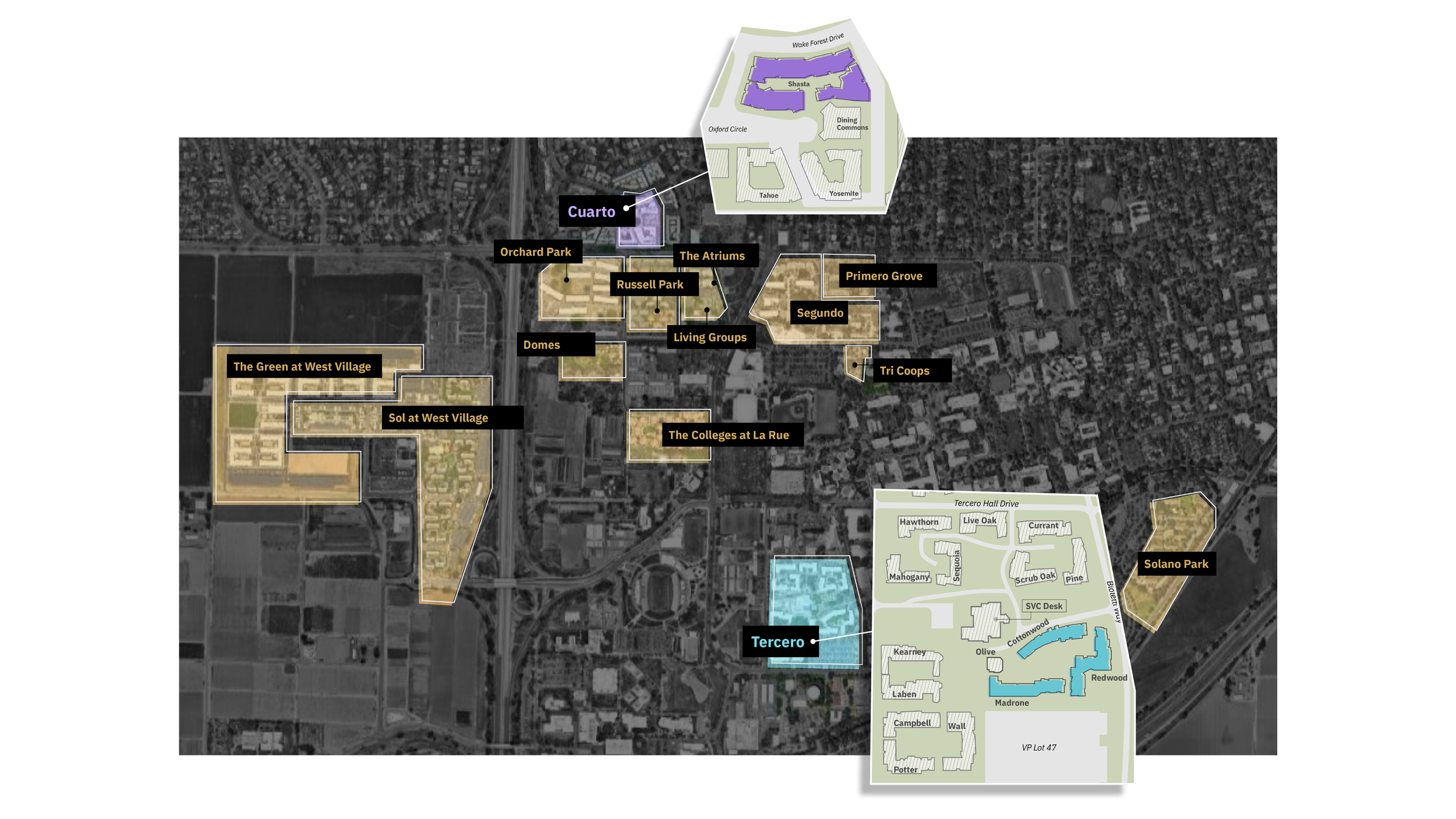Comparing the Influence of Residence Hall Architecture on Experience
Student housing has a diversity of configurations—but space is at a premium; every square inch matters. So we investigated how the details, small and large, of two distinct student housing layouts impact experience from multiple vantage points—including operations staff, resident advisors, and students themselves. This matters because we know that higher satisfaction with environments has a range of benefits—primarily connected to well-being which in turn impacts retention and academic success.
In this study we measure student experience in two comparable (by room size and occupancy density) but distinct student housing configurations (by bathroom configurations and social spaces). En-suite layouts have bathrooms embedded in the mini suites, smaller hallways, more social spaces and exterior bridges connecting each building. Cluster layouts have communal bathrooms, wider hallways, smaller social spaces, and separate buildings.
Objectives:
Identify pros and cons of cluster and en-suite style bathroom layouts when designing and operating student housing from the perspective of residents, community advisors, and staff.
Understand the relationships between and impact of bathroom layouts on student-level metrics that influence the campus experience.
Apply findings and address implications of the quasi-experimental study to the planning, design, and operations of student housing practice.
Shasta (top) and T4 (bottom) residential halls on UC Davis’ campus
Importantly, overall environmental satisfaction with both the residential units and public spaces each significantly predict well-being, belonging, and loneliness.
By synthesizing our findings, we plan to inform future decision making and develop best practices for residential hall design and operations.
The Coalition
Our key findings include:
While overall environmental satisfaction is a predictor of the well-being metrics, the environmental attributes in units that predict mental well-being, belonging, and loneliness vary between the cluster and en-suite style units.
Access to green spaces helps promote relaxation, restoration, and socialization for residents.
The typical room does not facilitate studying or/ and socializing, so there is a need for additional small lounges & other private spaces.
Balancing privacy, personalization, and convenience: en-suite bathrooms provide privacy and facilitate a sense of ownership and personalizability, however, they also tend to be messier and more difficult for maintenance and custodial staff to access compared to cluster-style bathrooms.
Research Outcomes
Please fill out the form to download the project report.






